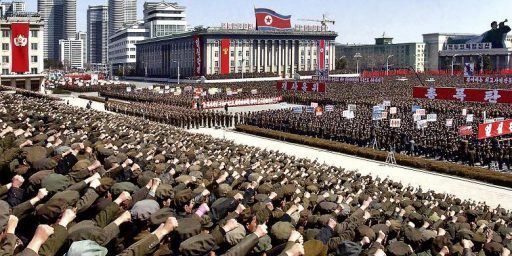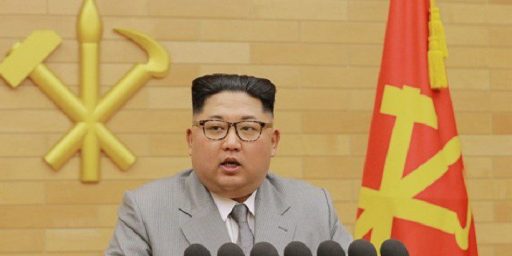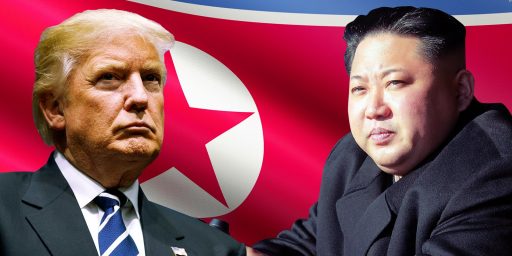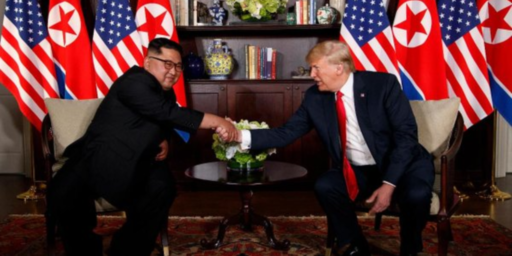Kim Jong-Il Personality Cult Ending?
Kim References Softened in N.Korea; Experts Ask Why (Reuters)
North Korea seems to be softening its hitherto rigid personality cult around leader Kim Jong-il, experts on the reclusive communist state said Thursday — although they were still unsure why the changes had been made. Some diplomats in Pyongyang and experts in the South said this week portraits of Kim had been removed from some public places, starting as far back as September or even August. Some visitors to the North have said fewer people wear lapel badges bearing Kim’s image. Seoul’s Yonhap news agency reported that Kim himself had ordered the portrait shift three weeks ago because he was concerned his image had been “lifted too high.”
In Tokyo, a Japanese news agency said Thursday that North Korean media had dropped the most laudatory references to Kim in the Korean broadcasts and texts it monitors. “Kim Jong-il is known to be a little bit skeptical in private about the personality cult. He doesn’t buy into all the adulation,” said Michael Breen, author of a biography of Kim. “But what’s prompted it? Who knows?”
Some people contacted in the North say there is no change. With information tightly controlled, outside experts place emphasis on reading between the lines much as Kremlinologists did in the Soviet era, trying to divine the workings of the elite. In this contemporary conundrum, analysts are advancing theories that range from a power struggle to the desire to avoid the fate of Romanian leader Nicolae Ceausescu, shot in December 1989 as communist rule ended in Eastern Europe. Other theories include illness, Chinese impatience or an attempt by Kim to signal there will be no further dynastic succession. Kim succeeded his father, Kim Il-sung, in 1994. “It may be an attempt to distance the country from the international image of worshipping a cult figure,” said Koh Yu-hwan, a professor and leading expert on Kim at Seoul’s Dongguk University. “The conditions in the North are not good, and there is a greater scrutiny also.”
Very interesting.
(via Gunner)





